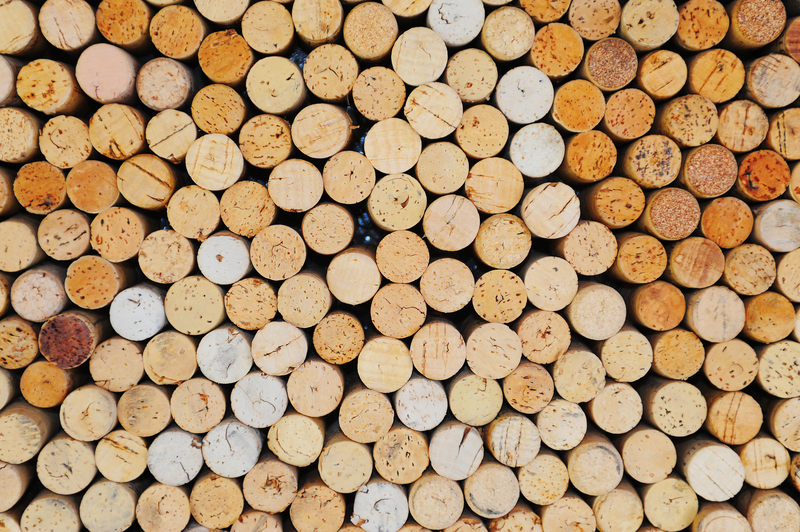Save More When Dealing With Bulky Waste Items: A Comprehensive Guide
Bulky waste items are those large pieces of rubbish that simply can't be disposed of through regular waste collection services. From old furniture to broken appliances and garden debris, disposing of these oversized items can often be expensive and inconvenient. However, with the right strategies, you can save money, protect the environment, and even create opportunities from your waste. In this comprehensive guide, you'll discover the best approaches to save more when dealing with bulky waste items.
What Qualifies as Bulky Waste?
Before exploring cost-saving tips, it's important to understand what constitutes a bulky waste item. Local authorities and waste collectors generally consider these as objects that are too large to fit in your normal wheelie bin or regular skip. Common examples include:
- Sofas and armchairs
- Mattresses
- Tables, chairs, and cabinets
- White goods (fridges, washing machines, ovens)
- Large garden equipment (lawnmowers, sheds)
- Carpets and rugs
- Bathtubs, toilets, or sinks
If you're unsure whether your item is classified as bulky waste, check your local council's website for guidelines or contact a rubbish removal service for clarification.

Why Is Disposing of Bulky Waste So Expensive?
Disposing of large, unwanted items often comes with a significant price tag. Several factors contribute to the higher costs associated with these items:
- Weight and volume: Most disposal fees are calculated based on size or weight, and bulky waste naturally takes up more space.
- Special handling: Certain items--like white goods containing refrigerants--require specialized treatment or recycling, increasing service prices.
- Transport requirements: The logistics of moving large items often require purpose-built vehicles and multiple personnel.
- Environmental regulations: Frying pans, TVs, and electronics must be processed according to strict disposal rules to prevent environmental harm.
But there's good news: saving money on bulky waste disposal can be achieved by using smarter, sustainable, and community-friendly methods.
Top Tips to Save More When Dealing With Bulky Waste Items
1. Avoid Disposal Fees with Reuse and Donation
One of the most cost-effective ways to dispose of bulky goods is not to dispose of them at all! If an item is still in decent shape, consider donating or selling:
- Local charities often accept furniture, electronics, and appliances for reuse or refurbishment.
- Online platforms like Gumtree, Freecycle, Facebook Marketplace, and Craigslist are great for giving away items at no cost. Many people will collect from your doorstep, saving you the hassle and fee of arranging transport.
- Community sharing days - Watch out for neighbourhood events or municipal 'swap days', where residents exchange or give away unwanted large items.
By choosing reuse and donation, you not only reduce your waste disposal costs but also help people in need and prevent items from going to landfill.
2. Take Advantage of Local Council Bulky Waste Collection Services
Many councils offer bulky item pickup services--sometimes for free (once or twice a year), or for a nominal fee. The advantages include:
- Convenient curbside collection on scheduled dates
- Cost savings over private removal companies
- Responsible disposal, recycling, or repurposing of collected items
However, check with your local authority for:
- Eligible items and weight restrictions
- Booking requirements and frequency limits
- Items that may incur a surcharge (e.g., mattresses, electronics)
3. Do-It-Yourself: Transport to Local Recycling Centers
If you own or can borrow a suitable vehicle (like a van or trailer), self-transporting bulky items to your nearest recycling centre or 'household waste and recycling centre' (HWRC) can be completely free or much cheaper than booking a removal service.
- Call ahead - Always check what items are accepted and opening times.
- Sort materials into wood, metal, WEEE, and general waste to speed up unloading and aid recycling efforts.
- Bring ID or a proof of residence, as many sites serve only local residents.
Tip: Some centers also offer 'reuse shops' - so if your items are reusable, you could save money and help others!
4. Join Forces: Organize Community Bulk Disposal Days
Rubbish removal companies often offer discounts for larger loads. Teaming up with neighbours, family, or friends to arrange a joint collection can substantially reduce costs per household:
- Split the cost of a skip or man-and-van service
- Increase your bargaining power for better rates
- Reduce vehicle congestion and emissions from multiple individual collections
Collaborative disposal events increase efficiency and foster a sense of community responsibility.
5. Disassemble and Reduce the Volume
Some removal services charge by the total volume occupied in their truck. Reducing the size and bulk of your items before collection can minimize costs:
- Take apart beds, tables, and sofas
- Remove mattress springs and separate recyclable materials
- Cut carpets or rugs into manageable sections
This approach makes it easier for collectors to fit more items per load, potentially lowering your removal fee.
6. Use Skip Bags for Smaller Bulky Items
Unlike traditional skips, skip bags are flexible, affordable, and suitable for smaller-scale bulky rubbish. Here's why they're a cost-effective choice:
- Purchase online or at hardware stores
- Fill at your own pace - no need to rush
- Collection is cheaper than traditional skip hire
Skip bags are particularly useful for garden waste, wardrobe clearouts, and DIY projects, saving you both time and money.
Eco-Friendly and Cost-Effective Bulky Waste Solutions
Sell, Upcycle, or Repurpose Before You Dispose
Before spending on disposal, consider if your item can be transformed:
- Turn old wood furniture into garden planters, shelves, or benches
- Upcycle metal bed frames into trellises or artwork
- Repurpose wardrobes into tool sheds or storage units
Upcycling is both environmentally friendly and can save you money (or even earn a little cash!).
Recycle Properly to Avoid Fines
Improper disposal can lead to fines or environmental hazards. Adhere to your local recycling guidelines:
- White goods (e.g. fridges, freezers) - Must be processed by licensed handlers due to refrigerants
- Electronics (TVs, computers) - Classified as Waste Electrical and Electronic Equipment (WEEE) and should go to specialist recyclers
- Mattresses and upholstery - Should be directed to facilities equipped for textile and foam recycling
By recycling correctly, you avoid penalties, reduce waste, and may access free drop-off schemes.
Compare Rubbish Removal Companies
If a professional service is absolutely necessary, always check prices, reviews, and licences:
- Request detailed quotes and clarify what's included (labour, loading, VAT, landfill, recycling fees)
- Shop around--price comparison websites specialise in skip hire and bulky waste collection services
- Look for local businesses who often offer lower rates than large franchises
- Ask about volume discounts, same-day collection, and seasonal promotions
Smart Planning: When to Dispose for Maximum Savings
Take Advantage of Free Collection Days
Many municipalities run free bulky item collection days during spring and autumn clean-up drives. Mark your diary and wait until these events to clear large items at no cost.
Short-Term Disposal: Renting or Borrowing Equipment
If you have several trips' worth of bulky waste, consider:
- Hiring a trailer or van for a day - Often cheaper than paying for multiple collections
- Borrowing from a neighbour (with their permission!)
- Booking equipment through community tool-lending libraries
Booking in Off-Peak Periods
Rates for private rubbish removal can spike at the end of tenancy or holiday periods. Plan your disposal in advance and book off-peak slots for the best deals.
Frequently Asked Questions About Bulky Waste Disposal
-
Can I leave bulky items out with my normal bin?
No. Most councils will not collect oversized items alongside regular waste. You may be fined for unauthorised dumping (fly-tipping). -
Is there a free option for disposing of old white goods?
Some councils offer free white goods collection, or retailers may collect old appliances when delivering replacements. -
What happens if I use an unlicensed service?
You risk fines, environmental damage, and possible criminal charges if your waste is fly-tipped or handled irresponsibly.

The Benefits of Responsible Bulky Waste Management
By using the tips above, you'll not only save more when dealing with bulky waste items, but also contribute positively to your community and the planet.
- Financial savings: Lower or eliminate disposal costs through reuse, donations, and community pooling.
- Environmental protection: Reduced landfill waste, increased recycling, and lower carbon emissions.
- Community impact: Helping those who need furniture or equipment, or supporting local reuse shops and charities.
Conclusion: Save Money and Do Good
Disposing of bulky waste items doesn't have to be expensive or environmentally damaging. By donating, recycling, collaborating with neighbours, and staying informed about your local resources, you will always find a solution that benefits both your wallet and the world around you.
Next time you need to get rid of large items, refer to these cost-saving strategies, and you'll discover just how simple--and rewarding--saving money on bulky waste disposal can be.